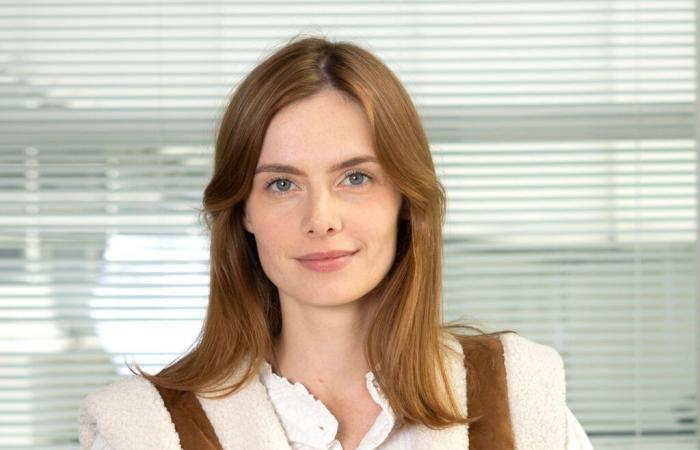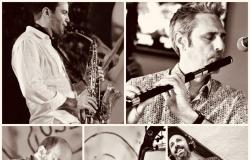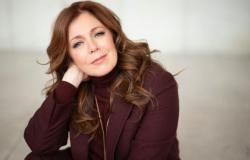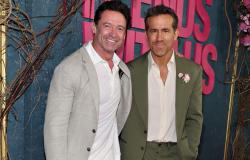Motherhood and fatherhood are, for parents, a rebirth: the greatest adventure of all, defends Aziliz Le Corre in an inspiring first work, The child is the future of Man (Albin Michel editions). A speech that goes against the grain in a world that no longer generates, as evidenced by the consequent fall in the birth rate in the West.
This essay dissects the “childfree” activist movements; from “No Kids”, who refuse to give birth to children in a world facing ecological peril, to certain feminists, who fear that their offspring will be an obstacle to their emancipation. But even more, this book analyzes contemporary mentalities, which lead to the rejection of childbirth. Because the child brings the unexpected into a world subject to consumer demands.
By summoning the masters of philosophy, Vladimir Jankélévitch, Emmanuel Levinas, Hans Jonas… the young 28-year-old essayist honors life and transmission. Aziliz Le Corre proves to all young women and men that it is possible and necessary to give birth in a world in crisis.
The No Kids phenomenon
Women and men no longer procreate, convinced of the need to stop giving birth. The GINKS (Green Inclination, No Kids, literally “green commitment, no children”), also called the No Kids, fear the ecological consequences of the increase in the population, while the childfree, “childless by choice”, advocate an emancipation from what they call “the injunction to procreate”. The demands of these activists are making headlines in progressive media and are gaining ground in the public space. “No children allowed” places are developing in transport, restaurants, vacation rentals, at events, such as… weddings where love is supposed to be celebrated. The figures are clear. In the United States, demographics are at a standstill. In the Europe of Twenty-Seven, the birth rate is 9‰ while the death rate is 13‰.
Find all JDNews articles here
The rest after this ad
This fall is accompanied by an ideology which both explains and accelerates the trend. The No Kids deny humanity by not making it happen. Worse still, they deconstruct it by disavowing what it is based on: man-woman otherness; the family as a natural entity, in which the child is the outcome of marital love. Today, children represent a danger for a humanity prey to climate peril. It is a burden, in a world subject to efficiency and profits. A brake on our selfish existences, guided by the desire for consumption and enjoyment. Motherhood has ceased to be attractive, it is no longer the apotheosis of femininity. It is an obstacle to a professional career. An obstacle to the development of women.
Humanity renewed
Birth is the event of events. She becomes the miracle that saves the world. It is not the simple cyclical repetition of life, by which one member of the species replaces the other: the child is celebrated as a newcomer, endowed with a proper name, destined for a singular story. Birth is still the event that enables events: it makes all adventures possible. The child takes a fresh look at things, he can reinvent them and act in this direction. He is the one who is amazed by a dead leaf that has fallen from the tree, looks at the daisy that has emerged among the weeds, invents new signifiers by appropriating language.
The child is the one who questions and questions tirelessly. He is not tired of existence; he marvels at the mystery of the world. He inhabits the Earth and makes it his field of exploration. This renewed outlook on the world transforms that of parents, forced to get rid of their ready-made ideas. Sometimes it happens that he restores their sight. Generation reinvents our future. The future is lived through the hope founded in this new man who will continue us. But make no mistake! This renewal does not make a clean slate of the past. On the contrary, it is by passing on what we have received that we will be able to preserve and bring out what is new and revolutionary in each child. Because we don’t build anything on ruins. The child is the link between what we have been, what we are and what we will be. He is the only possibility of rebirth.
Register in an affiliate
Engenderment inscribes us in our own genealogy: I learn that before me, my own parents allowed themselves to be surprised by “this” life – mine. I was a child myself. But I had to wait until I became a parent to remember that I was. And it is by becoming a parent that I truly become part of the lineage. By becoming a mother, I become a daughter. Because I realize what I received from my parents in my ingratitude. I realize that my parents did their best to offer me what they could give me, while dealing with their own history and their intimate flaws.
Generation reinvents our future
The bond broken by the emancipation necessary for adult life is thus reconstituted in a strange paradox: by truly becoming an adult in motherhood, I become a child again. By having the responsibility of a child myself, I accept having been this fragile little being in the protective arms of my parents. I imagine them in the destitution of this meeting with their newborn. Themselves carried away in this whirlwind of life. Making the words of André Suarès their own: “It’s nothing to be born: you have to be reborn” or this dazzling title from Pablo Neruda: Born to be born.
Don’t be afraid to be afraid!
Humanity faces an unprecedented threat: that of its own destruction. It is only because we can fear the disappearance of humanity that the obvious necessity of preserving it is imposed on us. Its value lies in its possibility of being. A new ethic of responsibility implies a desire to take one’s part and exercise it in the most natural way possible – by becoming father and mother. To oppose it is to render obsolete the possibility of taking care of one’s environment and of all human life. […] We must therefore both monitor the effects of our action and perpetuate the cycle of life by awakening children to the responsibility they carry within them. Because children are potential men.
Let us also remember that it is not only human fragility that fear reveals to us, but that of life in general. Everyone must be aware of their power, and its effects, to renounce their omnipotence. Fear must provoke in us a start in order to act to prevent disasters. We understand that the possibility of all life on Earth is not limited to human life. Otherness, in the broader sense, evokes all living things. A human ecology does not pit man against nature. It integrates them into the same ecosystem, from plants to humans, without putting them on an equal footing. If man remains at the top of the scale of values, this does not give him the right to become master and destroyer of nature. It must enter into relationship with all living things, recognizing that its maintenance depends on our power.
A community of destiny
When in January 2024 Emmanuel Macron advocated a “demographic rearmament”some feminists uttered cries of outrage […]. But is it not the role of a politician to preserve and grow the strengths of the people who brought them to power? I previously mentioned the feeling of responsibility of the parent towards the newborn, thought by Hans Jonas. The philosopher extends the analogy to the statesman. The latter’s mission is to take charge of the life of the community as a whole, because human life, like the destiny of nations, is perishable. Its role is to protect this fragility. The statesman must defend the heritage of his homeland, but also the institutions of his country so that the national home is preserved. A community of destiny which works for the future of its children and for the protection of those who bear them; Is this not where the foundations of any stable society lie?
Preserve the Home
At the heart of the progressive ideology of No kids lies the desire to deconstruct all determinism. Deconstructors pursue progress for progress’s sake – improvement, novelty, and rejection of all tradition are destiny. Everything that belongs to the past is outdated. The natural given and its permanence over the centuries is a dangerous enslavement from which we must free ourselves. “Nothing is more dangerous for you than your family, your room, your past”wrote André Gide in Earthly Foods. At the risk of appearing subversive, I will point out the obvious. The family is a determinism that we cannot, by definition, get rid of. It comes from nature, even more than from culture. And remains biological. Like birth, the difference between the sexes, old age, death, it is immutable. Nothing is more precious than our children, our home, our heritage. Hoping that couples last, that they generate and that oikophilia prospers, is to work for the common good.
The family is a determinism that we cannot, by definition, get rid of.
“They lived happily and had many children”once concluded children’s stories. Let us restore to this formula all its nobility and all its relevance. It is now up to us to perpetuate the civilization of love that the West has built. The future is watching us.
The child is the future of man, Aziliz Le Corre, Albin Michel.
© Albin Michel






